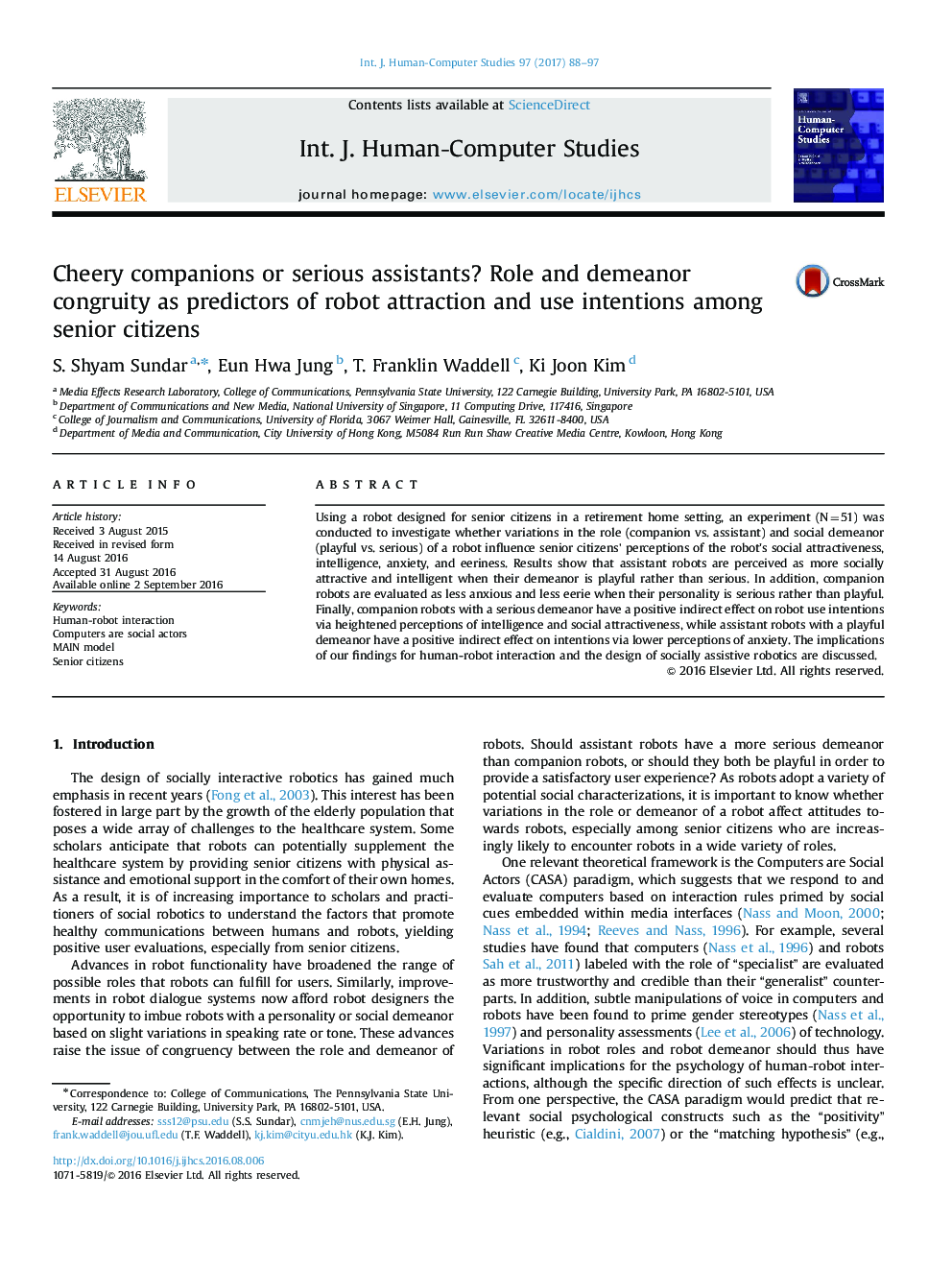| Article ID | Journal | Published Year | Pages | File Type |
|---|---|---|---|---|
| 4945871 | International Journal of Human-Computer Studies | 2017 | 10 Pages |
Abstract
Using a robot designed for senior citizens in a retirement home setting, an experiment (N=51) was conducted to investigate whether variations in the role (companion vs. assistant) and social demeanor (playful vs. serious) of a robot influence senior citizens' perceptions of the robot's social attractiveness, intelligence, anxiety, and eeriness. Results show that assistant robots are perceived as more socially attractive and intelligent when their demeanor is playful rather than serious. In addition, companion robots are evaluated as less anxious and less eerie when their personality is serious rather than playful. Finally, companion robots with a serious demeanor have a positive indirect effect on robot use intentions via heightened perceptions of intelligence and social attractiveness, while assistant robots with a playful demeanor have a positive indirect effect on intentions via lower perceptions of anxiety. The implications of our findings for human-robot interaction and the design of socially assistive robotics are discussed.
Related Topics
Physical Sciences and Engineering
Computer Science
Artificial Intelligence
Authors
S. Shyam Sundar, Eun Hwa Jung, T. Franklin Waddell, Ki Joon Kim,
